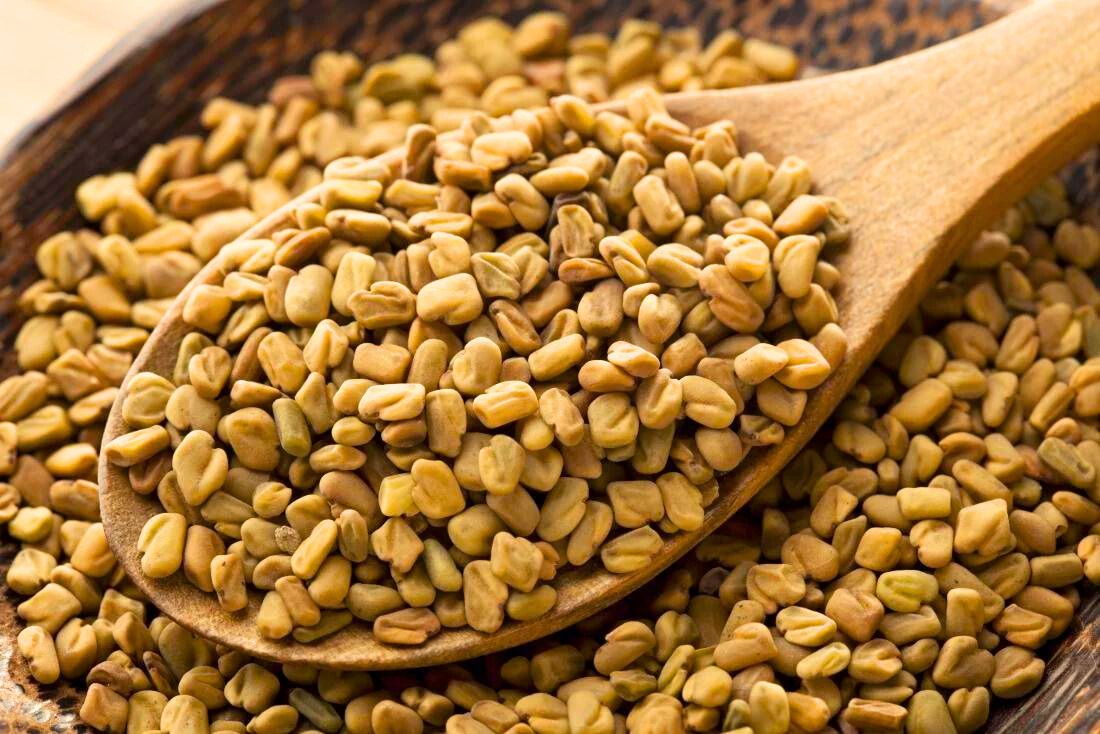
Why is Legendairy Milk SG Fenugreek Free?
Share
Fenugreek (Trigonella foenum-graecum) is an herb from the legume family that has been used for centuries as food and medicine. Fenugreek, native to India and Northern Africa, has traditionally been used to support milk supply. Its leaves and seeds are used in spice blends and recipes, while its leaves and sprouts are added to salads and cooked dishes. Fenugreek is used in traditional Chinese Medicine to warm the body and promote elimination. Many cultures also believe in keeping new mothers warm during the early postpartum period, with herbs prepared to support lactation. However, not all mothers have pleasant reactions to Fenugreek. In some cases, Fenugreek may actually cause a dip in milk supply.
Other adverse effects from Fenugreek includes:
1. Gastrointestinal Issues
Fenugreek may cause an upset tummy, excess gas, and diarrhoea in both mothers and babies. Its high fibre content and complex carbohydrates may be more difficult for some people to digest - causing these symptoms. Fenugreek’s compounds like Galactomannans, Saponins and Phytoestrogens may alter gut flora which contributes to gastrointestinal issues. When Fenugreek is transferred into the breastmilk and consumed by babies, these effects can show up in your baby too.

2. Allergic Reactions
Fenugreek belongs to the legume family which peanuts and chickpeas are also classified under. People who are allergic to foods like peanuts and chickpeas may also react to Fenugreek due to its botanical similarities. For mothers who have infants who are allergic to peanuts, avoid consuming Fenugreek as it may pass through the breastmilk and potentially cause harm to your baby. Choosing Fenugreek-free lactation supplements will ensure that you avoid these potential allergic reactions to have a safe breastfeeding journey!

3. Impact on Thyroid Function
Fenugreek has bioactive compounds such as Diosgenin and Phytoestrogens that can interfere with hormone regulation. Studies have shown that fenugreek can reduce serum levels of triiodothyronine which can exacerbate hypothyroid conditions. Fenugreek also contains goitrogens which are substances that can interfere with iodine uptake. Iodine is essential for the synthesis of thyroid hormones and a reduced iodine absorption can impair thyroid function. Thyroid hormones also play an important role in breastmilk regulation and production. Thyroid disorders can lead to symptoms like fatigue, slower metabolism and weight gain, depression and lactation issues.

4. Interactions with Medications
Fenugreek has different interactions with various medications and can pose risks for mothers who rely on other drugs for their health conditions. Fenugreek has blood thinning properties and when taken with anticoagulants and antiplatelet drugs like Warfarin or Aspirin, it can increase the risk of bleeding and bruising. Fenugreek can cause Hypoglycemia (dangerously low blood sugar levels) when used alongside diabetes medication like Insulin or Metformin. Symptoms of Hypoglycemia include dizziness, sweating, confusion or loss of consciousness in severe cases. Fenugreek can also affect the effectiveness of hormonal contraceptives as it contains Phytoestrogens which can mimic or interfere with Estrogen in the body.

5. Unpleasant Odour and Taste
In some cases, Fenugreek can present strong and distinctive odours and tastes which can be unpleasant. Due to the presence of the compound Sotolon, Fenugreek can cause sweat, urine and breastmilk to have a strong maple-like smell. Fenugreek also has a prominent taste of bitterness which can change the flavour of the breastmilk. This change in taste may lead to fussiness or reluctance to nurse in babies who may be more sensitive to flavours. This may make breastfeeding less effective and enjoyable for your baby.

Legendairy Milk fenugreek-free alternatives
Legendairy Milk is Fenugreek-free. Many women seek out herbal lactation supplements due to low milk supply. 1 in 20 women is affected by postpartum thyroiditis, which can happen even if you did not have a thyroid imbalance before getting pregnant. (10) Many other herbs can help increase milk production and flow that does not cause the imbalance of thyroid hormones like fenugreek does. Legendairy Milk lactation supplements contain herbs or combinations of herbs with you in mind.
- Moringa - found in Cash Cow and Milkapalooza
- Alfalfa - found in Cash Cow and Liquid Gold
- Fennel seed - found in Milkapalooza, Pump Princess, Liquid Gold, and Lechita
- Shatavari - found in Milkapalooza and Liquid Gold
- Nettle - found in Cash Cow and Milkapalooza
Although Fenugreek is a popular herb breastfeeding mothers use to increase milk supply, it may not be the best choice for many. It can cause unpleasant side effects for some women and babies and more serious health effects for others. It is recommended to discuss herbal lactation supplements with your healthcare provider, as they are aware of your complete health history. Legendairy Milk offers many high-quality lactation supplements, providing options for fenugreek-free herbal alternatives to boost your milk supply and milk flow, supporting you in continuing to provide the best for your baby.
References:
- https://www.britannica.com/plant/fenugreek
- https://www.meandqi.com/herb-database/fenugreek-seeds
- https://www.ncbi.nlm.nih.gov/pmc/articles/PMC11016425/#:~:text=Fenugreek%20seeds%20exhibit%20a%20protein,Wani%20%26%20Kumar%2C%202018).
- https://www.mskcc.org/cancer-care/integrative-medicine/herbs/fenugreek
- https://www.ncbi.nlm.nih.gov/pmc/articles/PMC2894366/
- https://www.ncbi.nlm.nih.gov/pmc/articles/PMC6475550/
- https://www.ncbi.nlm.nih.gov/books/NBK501739/#:~:text=Effects%20on%20Lactation%20and%20Breastmilk,expected%20to%20further%20improve%20lactation.
- https://www.ncbi.nlm.nih.gov/pmc/articles/PMC4949941/
- https://www.diabetes.co.uk/natural-therapies/fenugreek.html#google_vignette
- https://www.mcgill.ca/oss/article/controversial-science-diets-environment-food-health-history-news-supplements-toxicity/fenugreek-and-sotalone#:~:text=Since%20sotalone%20passes%20through%20the,be%20isolated%20from%20fenugreek%20seeds.
